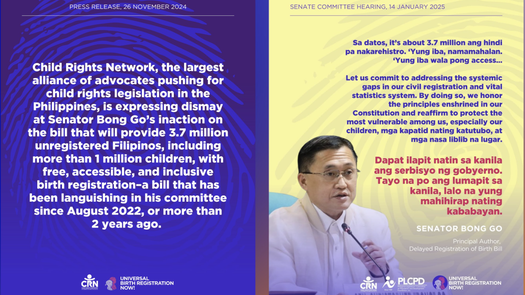July 29, 2025

As of early May 2021, a shocking 3,250,382 people worldwide had lost their lives COVID-19, a number that continues to steadily increase with every passing day. New COVID-19 variants, vaccine deniers, and supply shortages threaten to inflate these numbers even further. Yet, this figure only captures reported and confirmed cases of COVID-19 deaths; it does not include unregistered deaths, or those deaths that fall under the radar of the data gathering systems that governments have in place to register deaths and document their causes. Indeed, the actual number of COVID-19deaths is certain to be significantly higher than the registered number, with some studies suggesting the rue figure to be up to 50% higher.
For governments to allocate resources – including human, financial, and material resources – appropriately, it is critical that they have access to accurate and complete data on why, how many, and where people are dying within their jurisdictions. This is especially true in the case of COVID-19, which like so many diseases and adverse health conditions, disproportionately impacts marginalized and vulnerable communities. While all regions, sectors, and communities have been impacted by Covid, the hardest hit have been low- and middle-income countries, and within those countries, those without access to health care, housing, personal protective equipment, and other resources that can improve one’s chances if exposed to the virus.
For governments to know which communities most need help in any health crisis, with COVID-19 being the most stark and timely example, policymakers need a reliable way to capture accurate and current mortality data. Among all the various data gathering systems that exist, there is one that rises to the top and represents the gold standard for gathering death and cause of death information: the civil registration system. Civil registration, a term unfamiliar to most but utilized by almost everyone in one way or another throughout their lifetime, is defined as “the continuous, permanent, compulsory, and universal recording of the occurrence and characteristics of vital events,” notably including birth and death. Unlike other data gathering systems, such as those that are sector-specific (such as health statistics gathered by the Ministry of Health) or those that are utilized only at certain temporal intervals (such as a census), civil registration is designed to be continuous and ongoing, meaning it is always, at every moment of every day, capturing birth and death data. Moreover, it is universal, meaning that it applies equally to everyone located within a territory irrespective of citizenship, ethnicity, immigration status, or any other distinction; and it is compulsory, meaning that governments and individuals alike are required to do their part in securing this critical data.
While virtually all countries in the world have some sort of civil registration system in place, the quality and functionality of these systems vary tremendously. Unfortunately, many low- and middle-income countries have weak, outdated and under-resourced civil registration systems, which means that their governments are unable to capture the critical mortality data necessary to understand what their population is dying from and, therefore, how to best prevent these deaths from occurring in the future. In the context of COVID-19, without a strong and reliable civil registration system in place, countries are left guessing how to allocate precious resources and limited funds in an effort to contain the virus.
While often overlooked, one of the best ways to fight future pandemics, and indeed all health crises, is to ensure that a high quality and well-resourced civil registration system, which reflects international best practices, is in place. These are the systems that, when properly functioning, provide governments with the data necessary for public health planning, resource prioritization, and policy making.
The Global Health Advocacy Incubator (GHAI) is proud to be part of Bloomberg Philanthropies’ Data for Health Initiative, which focuses on strengthening civil registration systems in low- and middle-income countries throughout the globe. To date, GHAI has assisted nearly twenty countries in reviewing and strengthening their civil registration laws and regulations in the hopes of empowering them to be prepared when health crises, such as COVID-19, inevitably occur.



